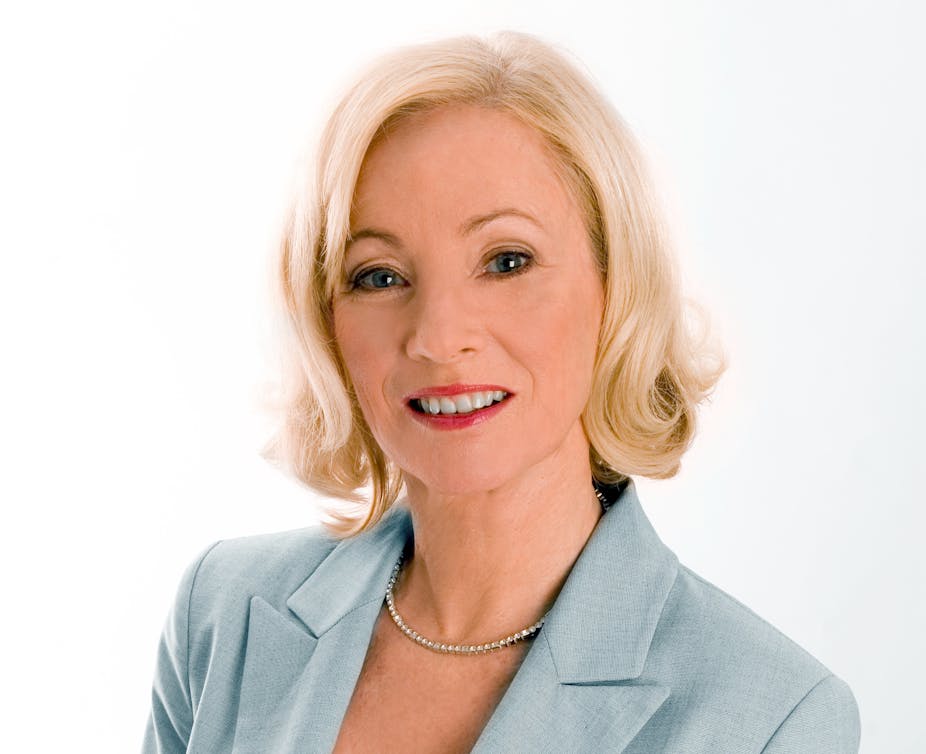Telstra’s Business Women of the Year awards are not usually known for attracting controversy. So, few people were prepared for the outrage that was sparked last week by Queensland winner, Dimity Dornan.
Dornan is the founder and managing director of the Hear and Say Centre in Queensland, which provides early intervention for deaf children.
In her acceptance speech, she compared deafness to polio in the 1950s, calling it a “scourge” (polio that is but, by implication, deafness too), which could soon be “consigned to history”.
Such comments would be unlikely to stir controversy if they were made about cancer, Alzheimer’s disease, or indeed most illnesses or disabilities.
But they didn’t sit well with Deaf people.
Statements were released by the national organisation of deaf people, Deaf Australia, and its international counterpart, the World Federation of the Deaf, expressing anger and offense, and calling on Dornan to apologise for her comments.
Several other organisations released statements condemning Dornan’s comments. Facebook, Twitter and the blogosphere were full of commentary, and a Facebook page called Stop Deaf Cultural Genocide soon clocked up hundreds of members.
Why was the response so instant and impassioned?
Few people would like the word “scourge” associated with themselves, but it can be difficult for the wider community to understand the claims that most Deaf commentators are making – they are proud to be deaf; they aren’t interested in being cured; and they consider themselves to be a linguistic and cultural minority group.
Many dissociate themselves from the “disability” label.
These views are held strongly by those who have been deaf from birth or early childhood, and who participate in the community of deaf people using signed languages. People with acquired or moderate deafness don’t usually share them.
Signed languages have developed within Deaf communities – some over many hundreds of years – and have been accepted as bona fide languages by linguists and by many governments (see the Australian Languages and Literacy Policy, 1991).
Acceptance of these languages has led to descriptions of Deaf communities having a distinct culture - a worldview created by shared experience, shared language, traditions and behaviours that facilitate life as a deaf person.
These include complex social networks, different ways of using light, space and touch and the sharing of particular values.
Deaf people generally value their signed languages highly and deafness becomes an intrinsically valued and nurtured aspect of their personal identities.
This culture and identity doesn’t stop deaf people from living and working in the “real” world, and most have close ties with hearing people.
Rather than separating us from others, the opportunity to use a signed language and participate in Deaf culture is usually an affirming and positive experience that makes our relationship with the rest of the world easier.
This shouldn’t be so difficult for the average person to understand. When my Irish father asked me many years ago why I spent so much time with other deaf people, I asked him why he still went to the Irish Club after living in Australia for more than 30 years, and he understood.
Most people are nurtured and supported by their cultural affiliations.
Another vexing part of Dornan’s acceptance speech was her claim that she represented all deaf people, especially deaf children.
This plays on the pervasive belief that deaf people are mute, dumb, language-less. Many deaf people have been quick to say that Dornan doesn’t speak for them.
Dornan implied she knows how all deaf people feel (when it’s evident that she doesn’t), that deaf people cannot speak for themselves and need representatives like her even tough they have a plethora of representative bodies.
What’s more, she assumes it’s perfectly acceptable for a hearing person to represent them – even though it’s no longer acceptable for a white person to say they represent Aborigines, or for a man to say he represents women.
Despite the surprise with which many people reacted to last week’s kerfuffle, it was nothing new to deaf people and those who work closely with them.
The history of deaf education, for instance, has been marked by long-running, often acrimonious debates between advocates of different methods of teaching – those who favour using speech and amplified hearing alone, and those who promote using signed languages.
History also has plenty of examples of attempts to cure and experiment on deaf people, with or without their consent.
As Prosper Meniere wrote blithely in 1855, “The deaf believe that they are our equals in all respects. We should be generous and not destroy that illusion. But whatever they believe, deafness is an infirmity and we should repair it whether the person who has it is disturbed by it or not.”
This is National Week of Deaf People around Australia, when we celebrate this resilient community and its language and culture.
Even as we’re congratulating ourselves on the progress we’ve made, it seems some things never change.

